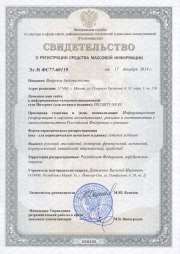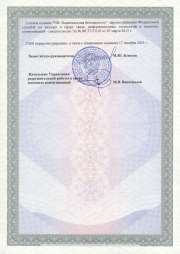|
MAIN PAGE
> Journal "Security Issues"
> Contents of Issue ¹ 01/2024
Contents of Issue ¹ 01/2024
|
Economical support of national security |
|
Sergeeva A.A., Gurev M.S., Kirillova Y.M., Pyatkova O.V., Feizullaev F.M., Lototskii A.S. - Some ways of countering fraud committed using digital payments according to the legislation of Russia and China
|
|
pp. 1-10
|
DOI: 10.25136/2409-7543.2024.1.69010
EDN: JMCGPE
Abstract: The relevance of the study is due to the increase in crimes on funds operating in non-cash form. In the future, the development of the digital economy will be associated with an increase in such risks. In this regard, the authors have made a comparison of the Russian and Chinese experience of their minimization. In both countries, there is a steady increase in the number of thefts committed using illegal access to digital payment systems. At the same time, criminal law norms designed to counteract fraudulent actions have certain drawbacks. The judicial interpretation of these norms is also ambiguous. In conditions of limited functioning of international payment systems, theft of non-cash funds can be committed in new ways. In the future, non-cash payments will increase in volume, so it is necessary to improve the security of their conduct. The authors used a comparative legal method, as well as analysis and synthesis, which made it possible to give the study a complete character. The article summarizes the Russian and Chinese experience in countering the theft of funds deposited in non-cash form. Since the share of non-cash payments in Russia and China is significant, not only economic entities, but also citizens are involved in their turnover. The latter, not having financial literacy, can become victims of fraudsters. The state policy regarding the regulation of non-cash payments is built in the direction of establishing control over the functioning of electronic platforms. However, this does not seem to be sufficient, since it does not reduce financial risks. The criminal legal field remains virtually the only lever to counteract this type of theft. At the same time, the structure of the criminal law prohibition does not reflect the nature and degree of public danger of fraudulent actions and does not clearly distinguish them from secret theft.

|
Internal threats and countermeasures |
|
Kutsev V.V. - Forms and methods of preventing crimes in the field of drug trafficking
|
|
pp. 11-19
|
DOI: 10.25136/2409-7543.2024.1.69561
EDN: QUZZSS
Abstract: The subject of this study is the forms and methods of preventing crimes in the field of drug trafficking. The purpose of the study is to analyze the forms and methods of preventing drug crimes, their differentiation, identify current problems and develop ways to solve them. Attention is drawn to the fact that the main actors in the prevention of drug crime are the state and society. The role of the state is to coordinate and determine the vectors of combating drug crime, draw up plans and programs for preventive activities, and determine the competence of other subjects of prevention. Society also plays an important role in reducing drug crime, so it is important to involve citizens in the prevention of crimes in the field of drug trafficking. It is determined that the feedback mechanism contributes to the qualitative interaction of civil society institutions with law enforcement agencies and government agencies. The research methodology includes a number of general scientific methods of scientific cognition. The following methods were used in the course of the research: the method of analysis and synthesis, methods of deduction and induction, the method of analyzing scientific literature, the method of systematization, formal legal, dialectical and other methods. The research is structured according to the principles of logic and structuring. The scientific novelty of this study is to highlight the urgent problems of drug crime prevention as one of the methods of preventing crimes in the field of drug trafficking. Special attention is paid to improving the practice of social rehabilitation of drug addicts. This topic has been the subject of scientific research, but the main focus of many researchers is on drug treatment. At the same time, social rehabilitation and employment of drug addicts are of no less importance, as they seriously reduce the likelihood of such persons committing crimes in the field of drug trafficking. The considered method of preventing drug crimes, expressed in individual preventive work with drug addicts, will also contribute to reducing the demand for drugs, which will reduce the number of crimes in the field of illicit trafficking. The conducted research allowed us to conclude that such a method of preventing crimes in the field of drug trafficking as individual preventive work with drug addicts, their adaptation and social rehabilitation is of high importance. Some problems in this area are considered, and possible solutions are proposed.

|
Economical support of national security |
|
Danilovskaia A.V. - Differentiation of criminal liability as an element of criminal law policy in the field of fair competition protection
|
|
pp. 20-39
|
DOI: 10.25136/2409-7543.2024.1.70062
EDN: XGRDHA
Abstract: The subject of the study is the issues of differentiation of criminal liability for crimes infringing on fair competition (hereinafter also anti–competitive crimes), as an element of criminal law policy in the field of protection of fair competition. In particular, the problems of identifying such a group of crimes, criteria for differentiating responsibility are studied using the example of analyzing both named and non-specified elements of crimes of certain qualifying signs of crimes, other means of differentiating responsibility for their commission, problems of building sanctions for crimes of the group in question.The purpose of the work is to assess the current state, identify problems of differentiation of criminal liability for crimes that infringe on fair competition, in the light of official recognition of the need to counter them as a threat to economic security, and identify ways to solve them. The research methodology is based on general scientific and private scientific methods of cognition – historical and legal, methods of system analysis, logical, comparative, formal dogmatic methods, the method of legal forecasting and classification, questionnaires. The novelty lies in: 1) in the study of the provisions of the Criminal Code of the Russian Federation in their relation to the Federal Law "On Protection of Competition" in order to establish criteria for the allocation of a group of anti-competitive crimes and substantiate the differentiation of responsibility for their commission; 2) in proposals on the allocation as independent elements of crimes of certain types of violations of antimonopoly legislation for which criminal liability has not been established, as well as on the inclusion in a number of articles of the Criminal Code of the Russian Federation of a sign of committing a crime for the purpose of unfair competition, as differentiating responsibility for crimes involving illegal trafficking of intellectual property in the field of entrepreneurship; 3) in the analysis of problems of means of differentiating responsibility for encroachments on fair competition and in proposals for their improvement, 4) in the proposal to keep official records of a group of anti-competitive crimes in the field of the formation of static reporting on crimes committed in the structure of crimes of economic and corruption orientation. The conclusions are that the elimination of the problems of differentiation of criminal liability for anti-competitive crimes, as well as the official accounting of such crimes, is the key to the effectiveness of the entire criminal law policy in the field of fair competition protection.

|
Technologies and methodology of security systems |
|
Nikolaev N.V., Il'in V.V., Nekrasov M.I. - Topical issues of countering modern autonomous unmanned aerial vehicles and FPV drones
|
|
pp. 40-60
|
DOI: 10.25136/2409-7543.2024.1.68860
EDN: TNFGJG
Abstract: The high level of development of unmanned aviation has predetermined the possibility of its use to solve a wide range of tasks. At the same time, it should be noted that achievements in this area are not always used for peaceful purposes. The results of the analysis of the practice of using unmanned aerial vehicles (UAVs) in modern military conflicts and information about terrorist acts with their use allow us to conclude that the most difficult targets resistant to various methods of influence are modern autonomous UAVs and FPV drones with explosive devices. Therefore, the search for effective ways to counteract them seems to be an urgent area of research. The aim of the work is to develop the means for effective counteraction to modern autonomous UAVs and FPV drones by electromagnetic, laser and mechanical ways. The methods of system analysis are used in the work. The article notes the increasing level of threats associated with the mass use of autonomous UAVs and FPV drones, presents the results of the "revision" and critical analysis of the main methods of countering modern UAVs, reflecting their characteristics, advantages and disadvantages. Based on the results obtained, a comparative analysis of methods of countering autonomous UAVs and FPV drones was carried out. It is concluded that the most effective of them are the methods of electromagnetic, laser and mechanical action. The required parameters for the effective application of these types of impacts on modern autonomous UAVs and FPV drones are presented. The results of the research can be used as initial data for the creation of new and improvement of existing means of countering UAVs as part of physical protection systems (SFZ). The scientific novelty of the work consists in the development of a scientific and methodological apparatus for substantiating the SFZ of objects in terms of taking into account the functioning features and vulnerabilities of modern autonomous UAVs and FPV drones, as well as determining ways to improve systems to counter them based on the use of electromagnetic, laser and mechanical means.

|
Camara A. - The Role of Cognitive-Information Technologies in Cybersecurity: Threat Detection and Adaptive Defense Systems
|
|
pp. 61-70
|
DOI: 10.25136/2409-7543.2024.1.69882
EDN: TMESCK
Abstract: The research delves into the influence of machine learning and artificial intelligence advancements on cybersecurity within software-oriented systems. The author thoroughly examines the modeling of cognitive-information technologies and their ramifications on data analysis, training processes, and decision-making within these systems. Special emphasis is placed on identifying cybersecurity threats faced by artificial intelligence systems, such as susceptibility to cyberattacks. The study proposes adaptive defense components, including behavioral biometrics analysis, automated incident response, user and entity behavior analytics (UEBA), and vulnerability management, to address these threats. These components are underscored in the development of cybersecurity strategies in the contemporary digital environment, crucial for protecting sensitive data and infrastructure. Methodologically, the research involves analyzing existing cybersecurity threats and their impact on artificial intelligence systems, employing data analytics and modeling techniques tailored to information technologies. It also evaluates contemporary methods of adaptive cybersecurity. Key findings of the study not only identify cybersecurity threats to artificial intelligence systems but also propose adaptive defense components for effective mitigation. The research innovatively examines the influence of cognitive information technologies on cybersecurity strategies, offering novel approaches to safeguard data and infrastructure in the modern digital landscape. Additionally, the study highlights examples such as Natural Language Processing (NLP), image and video recognition, predictive analytics, and virtual assistants, which are integral to understanding the breadth of applications of artificial intelligence in cybersecurity. The author significantly contributes through a systematic analysis of diverse threats, culminating in comprehensive recommendations for cybersecurity. Furthermore, the study identifies future prospects for cybersecurity amidst evolving cyber threats, paving the way for further research and development in the field and enhancing understanding and ensuring security in the digital realm.

|
Perelygin I. - Analysis of software products and the study of automation of processes in the field of monitoring purchases and goods.
|
|
pp. 71-87
|
DOI: 10.25136/2409-7543.2024.1.69887
EDN: VLWPDM
Abstract: The subject of this report is a comparative analysis of software products and a study of business processes in the field of optimization of purchases and monitoring of goods. Within the framework of this study, the following tasks were set: the study of existing software solutions for optimizing procurement processes, the analysis of their functionality and effectiveness, as well as the study of business processes of companies in the field of monitoring goods. As a result of this research, an analysis of various software products was carried out, their advantages and disadvantages were identified, as well as current business processes were analyzed and opportunities and potential for optimization were identified. The obtained results and conclusions can be used to develop recommendations for improving procurement processes and monitoring of goods in organizations. In this study, a comparative analysis of software solutions for automating procurement processes is carried out. The research methodology included an analysis of the functionality, effectiveness and cost of the programs, as well as the study of user feedback and industry experts. The results made it possible to identify the main advantages and disadvantages of each software considered. The study of the main characteristics and functionality of procurement management systems represents a significant contribution to the field of information technology and business process management. An analysis of the comparative characteristics of ERM systems, their integration capabilities and compliance with business needs allows us to identify key factors for successful automation of procurement processes. This study not only expands scientific understanding in the field of procurement automation, but also provides practical recommendations for choosing the optimal procurement management system. The conclusions of the work emphasize the importance of customizing the software to the unique needs of the organization in order to achieve optimal efficiency and effectiveness in procurement management. The comparison table of the disadvantages of ERM systems presented in the final part by key parameters allows you to highlight the main advantages and disadvantages of each software product, which is an important step in choosing the most appropriate solution for a particular business. Thus, this study not only contributes to the development of scientific knowledge in the field of procurement management, but also provides valuable practical recommendations for the business community, helping to increase the efficiency and effectiveness of procurement processes in a modern business environment.

|
Staffing of national security |
|
Sadekov R.R. - Current aspects and problematic issues of the use of a polygraph in public service in modern conditions
|
|
pp. 88-104
|
DOI: 10.25136/2409-7543.2024.1.69634
EDN: VOGSDD
Abstract: In the work, the author examines problematic issues related to the study of the peculiarities of the organization and legal regulation of the use of a polygraph in public service. The article deals with various aspects of the use of a polygraph in the public sphere, including legal aspects, psychological and pedagogical features, physiological and ethical issues, as well as the protection of citizens' rights. In addition, it examines the experience of using a polygraph in various conditions when the procedure for obtaining, identifying, processing, storing and reliability of data is carried out, and as a result, it becomes necessary for competent public sector specialists to constantly pay special attention to the safety of storing and using confidential information received. In order to analyze the effectiveness of the use of a polygraph, the paper describes the tasks facing specialists, considers algorithms and techniques used to assess the reliability of the information received. The following methods were used in the preparation of the article : an analysis of literature, a system approach, comparative analysis and synthesis, induction and deduction, logical thinking techniques, classification. The main conclusions of the research conducted by the author are organizational aspects aimed at respecting the rights and freedoms of citizens who, for one reason or another, will have to undergo the testing procedure on a polygraph device. A prerequisite is the fact that the legal regulation of the use of a polygraph in the civil service requires clear formulation, transparency and objectivity of procedures, timely clarification of the upcoming nuances of the polygraph examination, related possible restrictions, but at the same time compliance with guarantees for employees who are being tested. This topic, in its content and meaning, is relevant, and therefore, today, the development of legal and methodological mechanisms for the use of a polygraph in the public sphere, based on scientific developments by leading scientists and practitioners in this field of knowledge, is in demand.

|
|






